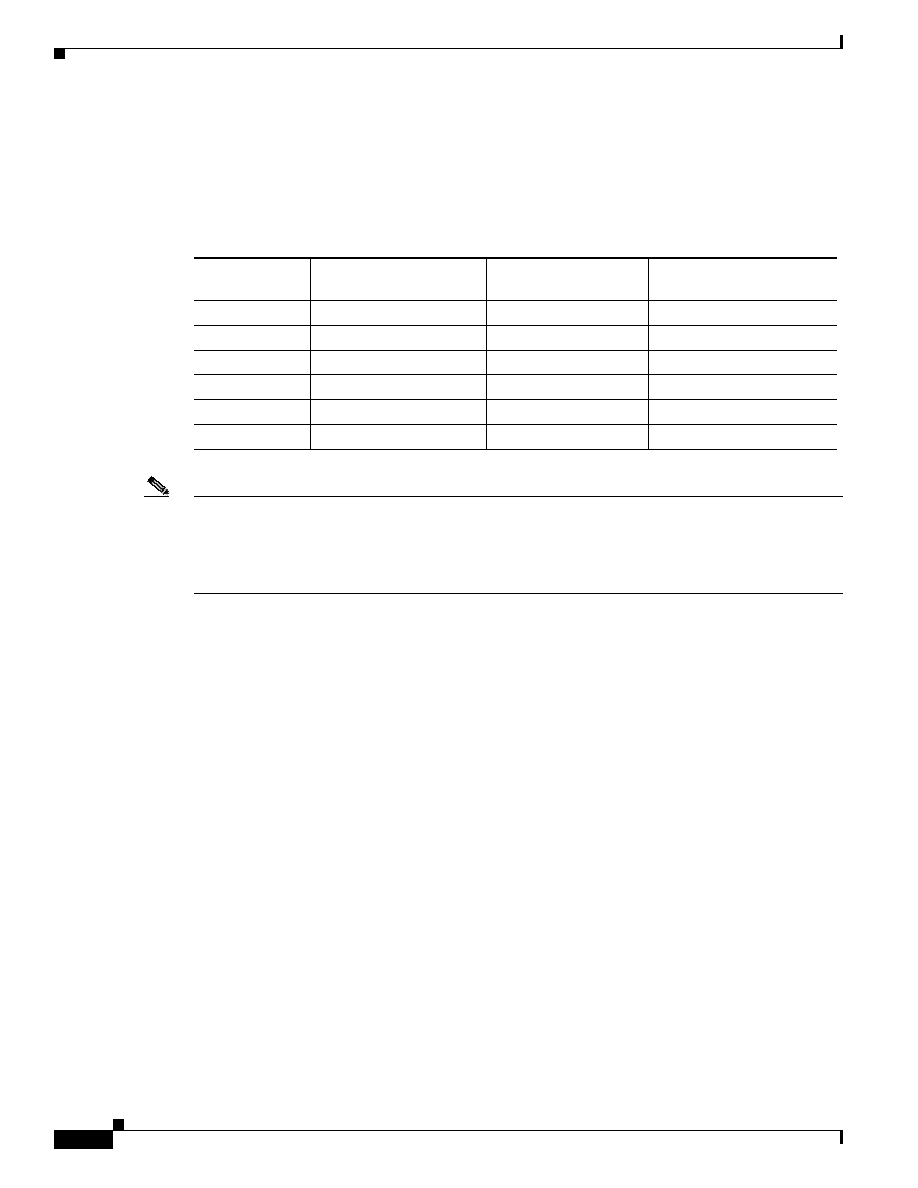
4-16
Cisco AVVID Network Infrastructure Enterprise Quality of Service Design
956467
Chapter 4 QoS in an AVVID-Enabled Wide-Area Network
QoS Recommendations for WAN Aggregation Routers
Because a flag and CRC need to be added for every fragment, enabling fragmentation directly affects
the CIR value. Therefore, the recommended CIR values as calculated by the formula above (and rounded
down to the nearest byte-boundary) are shown in the third column of
(CIR/100, rounded) are shown in the fourth column. As before, Be is set to 0 and the minimum CIR is
set to the CIR.
Table 4-2
Recommended Fragment Sizes, CIRs and Bursts for Slow-Speed FR Links
Note
cRTP can also be implemented on slow Frame Relay links. cRTP is best utilized on slow-speed links
after the CPU performance impact has been evaluated.
For more information on cRTP, see
illustrates a MQC policy applied to a slow-speed (512 kbps) Frame Relay link.
Example 4-9
Slow-Speed Frame Relay Link
interface Serial0/1
description Parent FR Link
no ip address
encapsulation frame-relay
frame-relay traffic-shaping
This command enables FRTS on the main interface.
!
interface Serial0/1.50 point-to-point
description FR Link to BRANCH#50
bandwidth 512
ip address 10.200.50.1 255.255.255.252
frame-relay interface-dlci 150
class FRTS-512kbps
This command applies the FRTS map-class to the DLCI.
frame-relay ip rtp header-compression
This command enables cRTP.
!
...
!
map-class frame-relay FRTS-512kbps
frame-relay cir 508816
frame-relay bc 5090
frame-relay be 0
frame-relay mincir 508816
no frame-relay adaptive-shaping
service-policy output WAN-EDGE
This command applies the MQC policy to the FRTS map-class.
frame-relay fragment 640
This command enables FRF.12.
PVC Speed
Maximum Fragment Size
(for 10 ms delay)
Recommended CIR
Values
Recommended Bc Values
56 kbps
70 Bytes
52968 bps
530 bits per Tc
64 kbps
80 Bytes
60952 bps
610 bits per Tc
128 kbps
160 Bytes
124872 bps
1250 bits per Tc
256 kbps
320 Bytes
252832 bps
2530 bits per Tc
512 kbps
640 Bytes
508816 bps
5090 bits per Tc
768 kbps
960 Bytes
764940 bps
7560 bits per Tc
